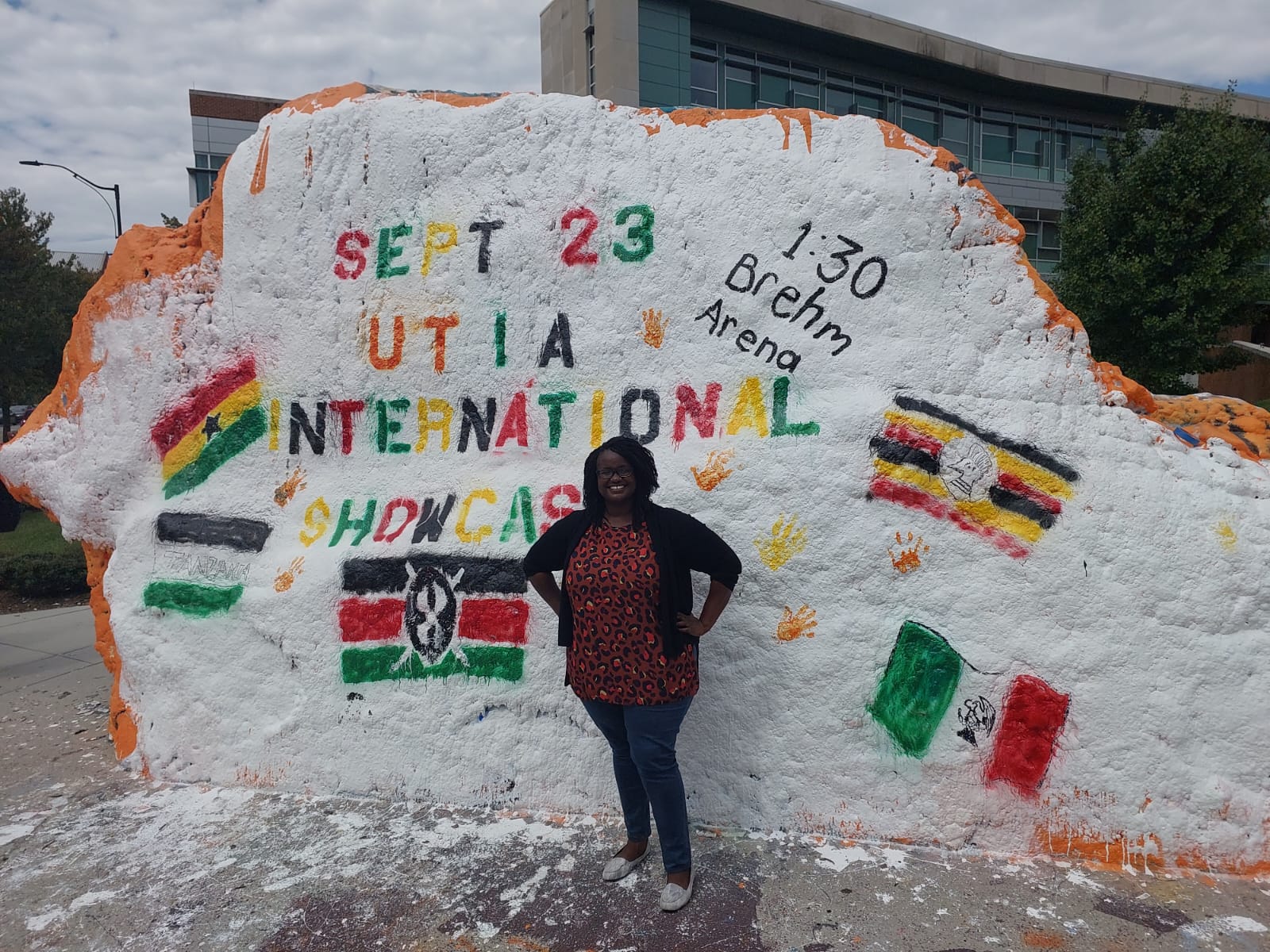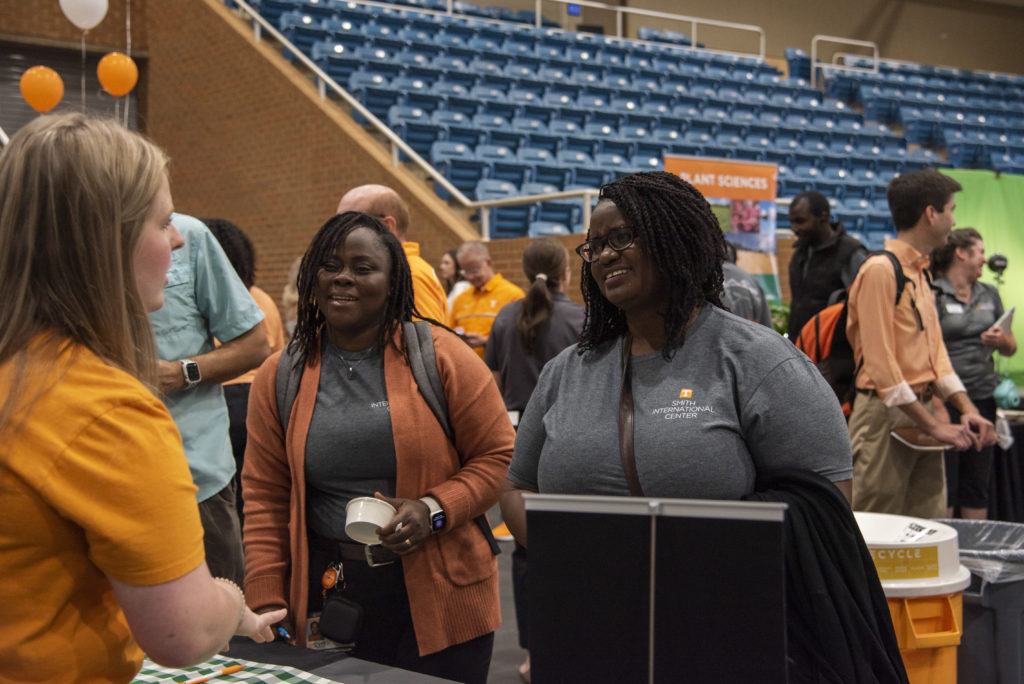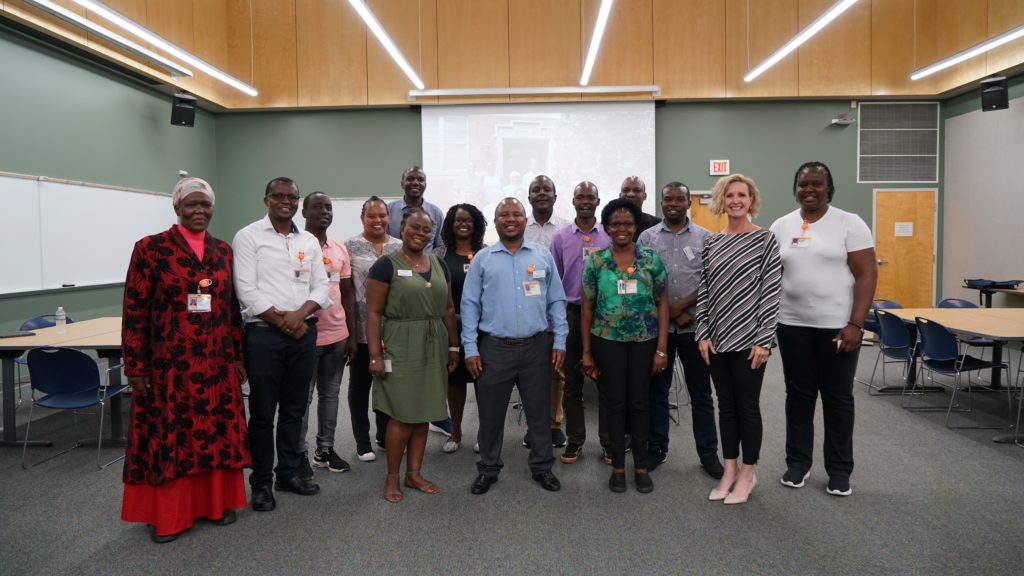
By Mary Shelley-Snell
From August to December 2022, the University of Tennessee Institute of Agriculture hosted nine Faculty Exchange Program (FEP) and five Scientific Exchange Program (SEP) fellows from four African countries. These programs are funded through the Foreign Agriculture Service (FAS) at the United States Department of Agriculture (USDA), and they focus on veterinary teacher pedagogy and animal health governance. Marcy Souza, professor and associate dean for outreach and global engagement at UTIA CVM, served as the project lead for both programs. The visiting SEP fellows were all from Kenya, and the FEP fellows were from Ghana, Kenya, Tanzania, and Uganda. They were matched with faculty members from three different UT colleges for mentorship for the duration of their programs. Learn more about each fellow and their mentor throughout this #FacultyExchangeFriday blog series.

Bridgit Muasa is the head of the Virology and Molecular Lab and the quality manager at the Central Veterinary Laboratories in Kenya. Learn more about her experience as a SEP Fellow below!
Q: What interested you about this program?
A: I liked that it was more policy focused work, as well as the opportunity to learn more about lab diagnostics. I felt it presented the opportunity to learn more about why we do the things we do and delve into the ways we can do them better.
Q: What were some highlights of the program for you?
A: I gained a better understanding of how animal health is governed in the U.S. and seeing how the different departments within the USDA work together to monitor the spread of diseases was really impactful. Since my background is in diagnostics, I valued visiting the State Animal Health lab in Nashville. They were so passionate about their work, so I felt we really learned a lot from speaking with them. Also, just seeing the level of preparedness when an animal disease outbreak occurs, and how the process works to contain that was interesting. My UT mentor was also great about connecting me with other professionals who share my research interests. This has exposed me to a wide variety of expertise and created the opportunity for me to grow my knowledge base as well as my network.
Q: What are you next steps following your completion of this fellowship?
A: I hope to work towards some sort of standardized accreditation for veterinarians based on the World Health Organization’s guidelines for international veterinarian licensing. But I’d like to go further than that by creating a training program on some sort of online platform to make it accessible to more people. Being here with the FEP fellows has opened the door for collaborating in the future, so I’d love to work with my FEP colleagues to incorporate the pedagogical techniques they learned about during their program to make the training as effective as possible.
Q: Why do you view exchange programs like this one as being important?
A: For countries that are building their animal health skills, these programs create so many opportunities. We’ve had access to world-class professionals, who are experts in their fields, to policy writers, and regulators. This helps make connections that will impact the future of animal health for both our countries.
Q: What was your favorite part about being at UT and in Knoxville, TN?
A: I’ve enjoyed developing an understanding about the entire land grant system and seeing how UT works with farming communities. Marcy Souza was also incredible. I’ll miss the people here, too. They’ve been friendly and have gone out of their way to be polite. One of the extracurricular trips I really enjoyed would have to be going to Dollywood!

Muasa was mentored by Richard Gerhold, associate professor of parasitology in the College of Veterinary Medicine. His work focuses on classical and molecular parasitology diagnostics and research. “We examine transmission dynamics as well as develop new diagnostic tests and understand the epidemiology of various parasites. I examine wildlife parasites and other pathogens to understand transmission dynamics and molecular epidemiology,” Gerhold said, “I relate these findings to the various population impacts on wildlife, domestic animals, and public health.” Read more below to learn about his experience participating in the SEP program as a UTIA faculty mentor.
Q: What interested you in participating in this program?
A: This program was very well set up and had very specific and measurable goals. In addition, I really enjoy mentoring students and other researchers and enjoy building collaborations. I’m excited to travel to Kenya to work with Bridgit and to continue our collaborations.
Q: What were some highlights of the program for you?
A: We had Bridgit present at our weekly lab meeting on her research and duties in Kenya as well as the culture and ecology of the country. Everyone in the lab was fascinated and expressed high interest in continuing to collaborate and visiting her. Bridgit was such a pleasure to work with and had such a great attitude and curiosity and was so thankful for everything and anything we did.
Q: What did you learn from interacting with your mentee?
I learned that we all struggle with the same issues in diagnostics and research regardless of what continent or country you’re located in. We shared ideas that will be beneficial to both my lab and hers. It was great to learn about her culture and the history of the country as well as what veterinary issues are occurring in Kenya that we may be able to assist with.
Q: What kind of impacts do you think these exchange programs have?
A: I think these exchange programs are invaluable from so many perspectives. These include increasing your understanding and excitement of learning about new cultures as well as bringing fresh ideas for a problem solving and research collaborations. In addition, it allows undergrad and graduate students the opportunity to work with outside experts and to connect to the world research community. It was truly an honor to be part of this and I look forward to being part of future exchange programs.